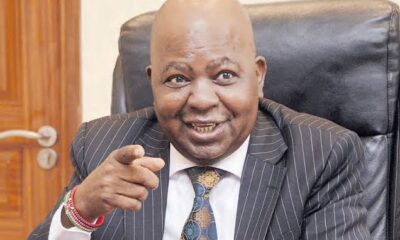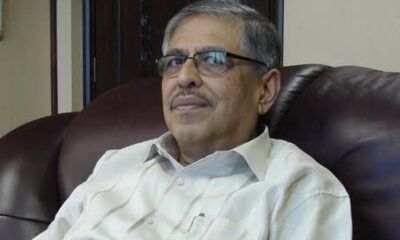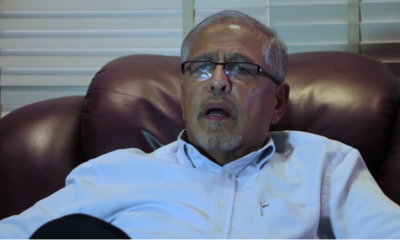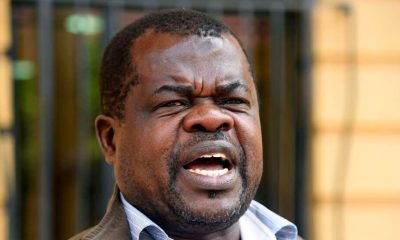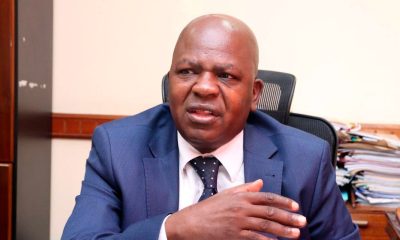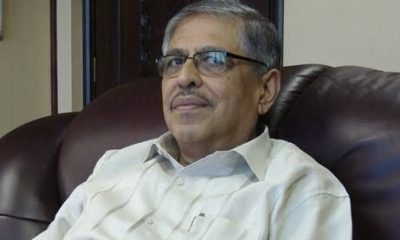News
Why Kenya Railways Boss Mainga’s Involvement in Joho-Jaffer Defamation Case Came Up in Court
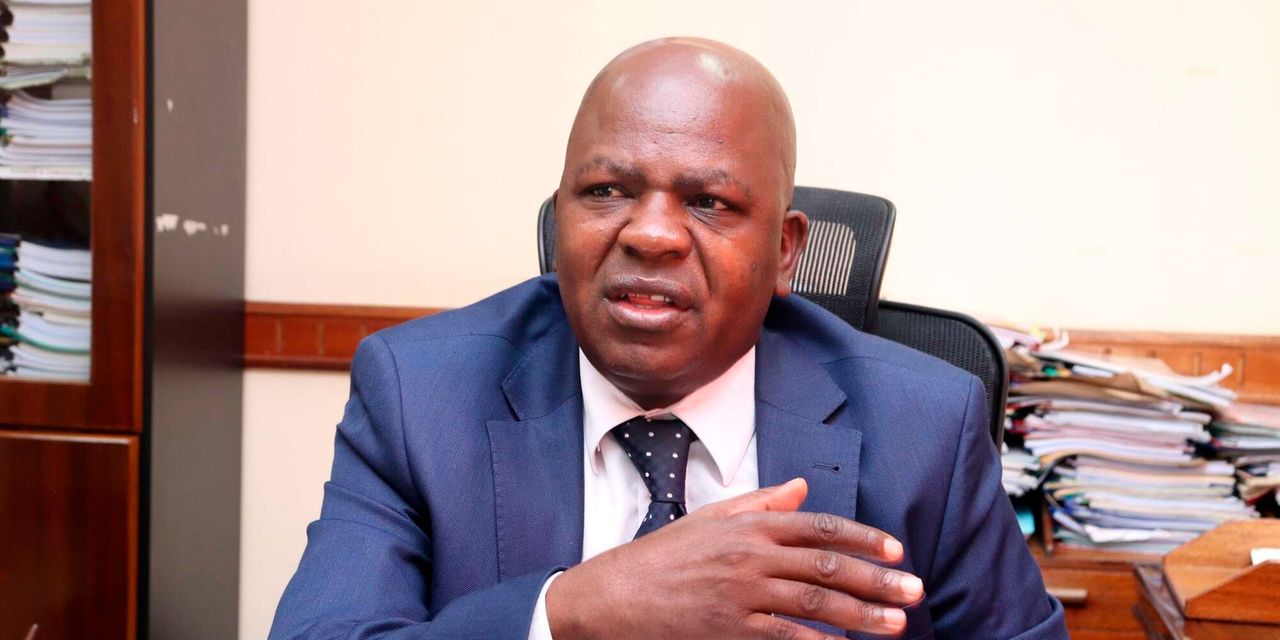
The Managing Director of Kenya Railways Corporation (KRC), Philip Mainga, has found himself unexpectedly mentioned in a high-profile defamation case involving Mombasa businessman Abubakar Ali Joho and his business rival, highlighting the complex web of relationships in Kenya’s port logistics sector.
The Unexpected Witness
Mainga’s name surfaced during court proceedings where Matilda Maodo Kinzani, an employee of Bulkstream Ltd, faces charges of publishing false and defamatory information about Abubakar Ali Joho – brother to Cabinet Secretary for Mining and Blue Economy Hassan Joho – and allegedly linking him to a Sh40 billion fraud scheme.
According to testimony from Police Constable Fredrick Muchiri of the Anti-Terror Police Unit (ATPU), Mainga allegedly informed Abu Joho about the existence of a defamatory document circulating on social media that targeted both him and his prominent brother.
“The information we received is that it was Mr Mainga who notified Mr Abu of the defamatory document. However, I have not examined his phone to verify the communication,” Muchiri told Mombasa Senior Resident Magistrate David Odhiambo during cross-examination last Friday.
The Business Rivalry Context
The defamation case centers on accusations that Abu Joho’s entry into the port logistics business disrupted a three-decade monopoly allegedly held by tycoon Mohamed Jaffer, owner of Bulkstream Ltd (formerly Grainbulk Handlers Limited). This business rivalry forms the backdrop of what Abu Joho describes as a “sustained smear campaign” against his family.
Abu Joho, who operates Autoport Freight Terminus and Portside Freight Terminal, directly blamed Jaffer for orchestrating the attacks. “He has had a monopoly for 30 years. Now that I have entered the port business, that’s where our troubles began. He is the monopoly; I am not,” he testified.
The Defamatory Document
The controversial document allegedly made grave accusations against Abu Joho, including:
- Involvement in drug trafficking
- Illegally acquiring Kenya Railways land in Mombasa
- Helping his brother embezzle Sh40 billion from Mombasa County coffers
- Personal attacks on his family’s reputation
The document was allegedly circulated in a WhatsApp group and later spread across social media platforms, prompting Abu Joho to file a formal complaint with the Directorate of Criminal Investigations (DCI) in July 2024.
Forensic Evidence Points to Accused
Despite Mainga’s alleged role in alerting Abu Joho to the document’s existence, police investigations traced the defamatory content to Kinzani’s electronic devices. Constable Muchiri emphasized that forensic analysis confirmed Kinzani as the author, not Mainga.
“It is not possible that Mr Mainga authored the letter because forensic analysis traced it to Ms Kinzani’s phone. I reviewed the forensic report, which links the document to the accused,” Muchiri testified.
Procedural Questions Raised
The defense, led by lawyer Michael Oloo, raised questions about the investigation’s handling, particularly why an Anti-Terror Police Unit was investigating a cybercrime case rather than the designated cybercrime division. Seven ATPU officers participated in raiding Kinzani’s home and workplace to seize electronic devices for forensic analysis.
Muchiri defended the unit’s involvement, stating: “We were not investigating Ms Kinzani for terrorism. This publication did not constitute a terrorist threat.”
Missing Evidence and Administrative Issues
In a surprising development, Muchiri admitted that his handwritten statement was missing from the court file, with only a typed version containing typographical errors available to both prosecution and defense teams.
“The statement in the file is typed, but it’s not signed by me. I wrote and submitted it to the investigating officer, but it’s missing. I don’t know why,” he revealed.
The case highlights the intense competition in Kenya’s lucrative port logistics sector, where established players face disruption from new entrants.
Abu Joho’s emergence as a significant player in the industry has apparently triggered what he describes as character assassination rather than fair business competition.
“This is not business competition. It’s character assassination. It has affected me, my business, and my family,” Abu Joho lamented during his testimony.
The Charges
Kinzani faces four criminal charges under Section 23 of the Computer Misuse and Cybercrimes Act for allegedly disseminating false and defamatory information online. She has denied all accusations and is currently out on Sh300,000 cash bail.
What’s Next
The case continues to unfold with the prosecution seeking to establish the full extent of the alleged defamation campaign.
While Mainga’s exact role remains unclear – he was not called as a witness despite allegedly being the one who alerted Abu Joho to the document – his mention underscores the interconnected nature of Kenya’s business and government circles.
The hearing is set to continue on August 8, 2025, with the lead investigator expected to provide more details about the forensic analysis that linked the defamatory document to the accused.
As this case progresses, it offers a rare glimpse into the high-stakes world of port logistics business, where competition can quickly escalate from boardrooms to courtrooms, dragging in unexpected players from Kenya’s public sector.
Kenya Insights allows guest blogging, if you want to be published on Kenya’s most authoritative and accurate blog, have an expose, news TIPS, story angles, human interest stories, drop us an email on [email protected] or via Telegram
-

 Grapevine1 week ago
Grapevine1 week agoAlleged Male Lover Claims His Life Is in Danger, Leaks Screenshots and Private Videos Linking SportPesa CEO Ronald Karauri
-

 Lifestyle1 week ago
Lifestyle1 week agoThe General’s Fall: From Barracks To Bankruptcy As Illness Ravages Karangi’s Memory And Empire
-

 Grapevine3 days ago
Grapevine3 days agoRussian Man’s Secret Sex Recordings Ignite Fury as Questions Mount Over Consent and Easy Pick-Ups in Nairobi
-

 Investigations2 weeks ago
Investigations2 weeks agoEpstein Files: Sultan bin Sulayem Bragged on His Closeness to President Uhuru Then His Firm DP World Controversially Won Port Construction in Kenya, Tanzania
-

 News2 weeks ago
News2 weeks agoAUDIT EXPOSES INEQUALITY IN STAREHE SCHOOLS: PARENTS BLED DRY AS FEES HIT Sh300,000 AGAINST Sh67,244 CAP
-

 Business2 weeks ago
Business2 weeks agoKRA Can Now Tax Unexplained Bank Deposits
-

 Investigations1 week ago
Investigations1 week agoEpstein’s Girlfriend Ghislaine Maxwell Frequently Visited Kenya As Files Reveal Local Secret Links With The Underage Sex Trafficking Ring
-

 News1 week ago
News1 week agoState Agency Exposes Five Top Names Linked To Poor Building Approvals In Nairobi, Recommends Dismissal After City Hall Probe

